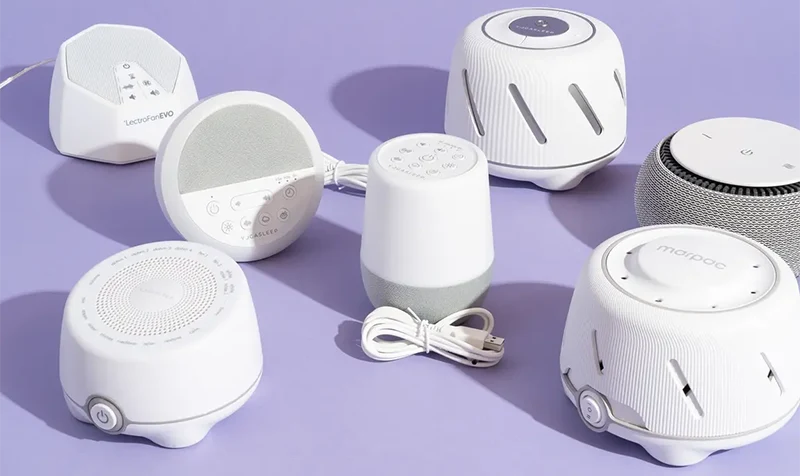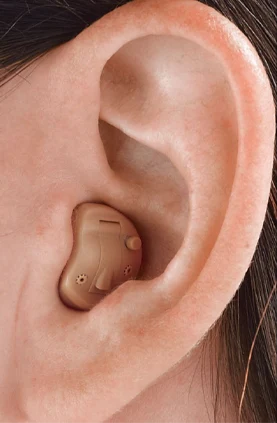Tinnitus is a perception of ringing, buzzing, or whooshing sound in your ears and can be a frustrating and sometimes concerning experience. It affects millions of people worldwide, so a common question, “How Long Does Tinnitus Last?” arises.
This article aims to share a pretty understanding of tinnitus, its cause, duration, impacts, and associated concerns. It also mentions 3 valuable and effective guidance on remedies for tinnitus.

Say GOODBYE to whoosing, buzzing, & clicking!
ENJOY 20/20 HEARING and
BETTER BRAIN FUNCTION
*With 60 days money back guarantee
What is Tinnitus?
Tinnitus is the perception of sound in the absence of an external source. This means you hear ringing, buzzing, clicking, or even whooshing sounds without the presence of any source that creates those noises in the environment. It’s important to note that tinnitus is a symptom, not a disease, and various underlying conditions affecting the auditory system may cause it.
It can be constant or intermittent and may occur in one or both ears. The sounds can vary in pitch and intensity, ranging from minor annoyance to significantly disrupting daily activities in life.
Where is the Sound Coming from?
The exact mechanism behind tinnitus is a subject of ongoing research. Tinnitus highlights the complex interaction between the ear and the brain in processing sound. Also, several theories attempt to explain the cause.
One theory suggests that the hair cells in the inner ear are responsible for converting sound waves into electrical signals, and any damage to them could be the reason. This damage might pass abnormal signals to the brain, interpreted as sound.
Another theory proposes that tinnitus originates in the auditory pathways within the brainstem. Here, altered neural activity creates the perception of sound even though no external sound is present.
Regardless of the exact cause is undetermined, the following factors may trigger changes in the auditory system and might lead to tinnitus.
Noise Exposure
Prolonged exposure to loud noises, such as from concerts, machinery, or firearms, can damage the delicate hair cells in the cochlea, leading to tinnitus.
Earwax Buildup
Accumulation of earwax can cause blockages in the ear canal, affecting sound conduction and potentially triggering short-term tinnitus.
Hearing Loss with Age
As people age, they may experience natural deterioration of the cochlea, which can contribute to the onset of tinnitus.
Medications
Certain medications, such as high doses of aspirin, antibiotics (e.g., gentamicin), and chemotherapy drugs, may cause or exacerbate tinnitus as a side effect.
Underlying Health Conditions
Health conditions like hypertension or high blood pressure, cardiovascular disease, diabetes, and temporomandibular joint (TMJ) disorders have been associated with tinnitus.
How Long Does Tinnitus Last in General?
The duration of tinnitus varies greatly among individuals. For some, it may be temporary and resolve automatically within days or weeks. This is often seen after exposure to acute noise factors for a short span, like attending a concert or using loud tools.
This usually fades away as the ears recover. Studies suggest that around 80% of tinnitus cases resolve or significantly improve within three months.
However, tinnitus can also become chronic, lasting for months or even years. For some individuals, it becomes a long-term companion. Around 20% of people with tinnitus experience chronic symptoms that persist for six months or longer.
Chronic tinnitus, which lasts longer than 6 months significantly impacts the quality of life. It often leads to sleep disturbances, difficulty concentrating, anxiety, and depression.
Additionally, the underlying cause and how well someone habituates to the sound play a significant role in determining how long tinnitus lasts.
3 Effective Remedies to Address Tinnitus
Effective remedies, including sound therapy, counseling, and lifestyle modifications, are mandatory to reduce the perceived severity of tinnitus and improve overall well-being. Here, we have listed 3 effective instruments that potentially help to cure tinnitus.
1. Quietum Plus Capsules
Generally speaking, tinnitus is attached to the system that carries electrical signals and sounds from your ear cells to your brain networks. Quietum Plus feeds, repairs, and rebuilds the system to bring it in perfect harmony with your brain and carry sounds perfectly.
Backed by hundreds of clinical studies, Quietum Plus capsules combine powerful plants with modern medicine and technology in its ingredients. You would like to try it with a 60-day money-back guarantee.

- Clear tinnitus
- No side effects
- Helps to cure hearing loss
- Supports nerve regeneration
- 60-day money-back guarantee

2. White Noise Machines for Tinnitus Relief
White noise machines are devices designed to produce a consistent sound across all frequencies, fully or partially masking the perceived sound of tinnitus. White noise machines are a popular tool for managing tinnitus. By providing a competing external sound, white noise machines can help:
Masking Tinnitus Sound
The steady white noise can act as a background hum, pushing the tinnitus perception into the background. WNM provides a constant background noise reducing the contrast between the tinnitus sound and the surrounding silence and making it less noticeable.
Improve Sleep Quality
Tinnitus bothers the sleep when the surroundings are quiet. White noise machines mask the ringing and create a more conducive environment for restful and calm sleep.
Promote Concentration and Relaxation
In daytime settings, white noise can help individuals concentrate better by masking tinnitus and reducing distractions. This can be especially beneficial in work or study environments where focus is essential.
Similarly, when this perception of ringing, buzzing, or whooshing sounds disappears, the mind feels at peace, increasing the relaxation and overall comfort of the body.

Experimenting with various white noise machines at different sounds and volumes would be a great option to find what works best for you. Some machines offer various white noise options, while others might have nature sounds like rain or ocean waves.
Alternative Free Sound Options for Tinnitus Relief
Listening to soft, calming music at a low volume can provide relief from tinnitus by diverting attention away from the internal sound. Choose music with gentle melodies and minimal lyrics to avoid further stimulation.
Additionally, various tinnitus relief soundtracks are available on platforms like YouTube. These soundscapes often include nature sounds, gentle white noise, or soothing melodies, and combine them with specific frequencies. Take precautions and adjust the volume to a comfortable level to soothe you and effectively mask tinnitus.
3. Hearing Aids
Hearing aids are the right choice for individuals experiencing tinnitus alongside hearing loss. Hearing aids are external devices that amplify external sounds to improve hearing. Furthermore, this amplification offers relief from tinnitus in a couple of ways:

Amplification of External Sounds
Hearing aids amplify sounds from the surroundings, making them louder and clearer. By enhancing external sounds, hearing aids make tinnitus less noticeable. This effect particularly benefits individuals with hearing loss and tinnitus.
Reduced Reliance on Internal Sounds
When hearing loss makes it difficult to hear external sounds, the brain might become more focused on any internal sounds, including tinnitus. By amplifying external sounds, hearing aids can help restore balance and reduce the brain’s dependence on tinnitus perception processing.
Sound enrichment
Hearing aids can introduce a wider range of external sounds into your auditory environment. This enrichment can help mask the tinnitus by providing a more natural soundscape that competes with the perceived ringing.
Considerations for Using Hearing Aids
It’s important to note that hearing aids are not a guaranteed solution for everyone with tinnitus. However, if you experience both hearing loss and tinnitus, consulting a hearing healthcare professional is recommended.
They can assess your hearing and tinnitus profile, recommend suitable hearing aid features, and ensure proper fitting and adjustment. Additionally, we strongly discourage trying hearing aids randomly from the open market. It may adversely cause permanent damage to hearing efficiency.
There are a few questions and myths about tinnitus. In this FAQs section, you will find answers to some of the most sought-after questions.
Does Tinnitus Cause Hearing Damage?
Tinnitus itself doesn’t directly cause hearing damage. However, certain conditions that cause tinnitus, like noise exposure or age-related hearing loss, can also damage your hearing.
Some medications used to treat tinnitus might also have ototoxic side effects, potentially harming the inner ear and worsening hearing.
If you experience tinnitus along with difficulty hearing conversations or muffled sounds then it is highly recommended to consult the doctor. Early diagnosis and treatment of the underlying cause can help prevent further hearing loss.
Can other People Hear my Tinnitus?
Tinnitus is typically an internal perception of sound and cannot be heard by others. It originates within the auditory system and is not caused by external sounds or vibrations. The sounds you perceive are not audible to others around you.
Can Tinnitus Cause Headaches?
Tinnitus itself is not directly associated with headaches. However, the constant ringing or buzzing can be stressful and contribute to headaches. Hence, tinnitus may experience secondary symptoms like stress, anxiety, and sleep disturbances for some individuals.
Additionally, certain underlying conditions that cause tinnitus, like temporomandibular joint (TMJ) disorders or neck pain, might also lead to headaches.
Will my Tinnitus Get Worse Over Time?
Tinnitus doesn’t necessarily worsen over time for everyone. People usually habituate to the sound, making tinnitus less noticeable and bothersome.
However, there are cases where tinnitus can worsen. This could be due to continued exposure to loud noises, certain medications, or stress and anxiety.
Consulting an audiologist or otolaryngologist (ear, nose, and throat doctor) is essential if you notice tinnitus getting worse. They can investigate the cause of the worsening and provide treatment to prevent further progression.
Can Allergies Cause Tinnitus?
Allergies are not a typical cause of tinnitus. However, allergies that cause congestion or inflammation in the nasal passages and middle ear, can sometimes lead to temporary tinnitus. This is because the congestion can affect the pressure balance in the middle ear.
Once the allergy symptoms subside and the Eustachian tubes (connecting the middle ear to the back of the nose) clear, it should resolve the tinnitus too.
Tinnitus can be a disruptive experience, but understanding its causes and how to manage it can lead you to relief from it. We found the answer to “How long does tinnitus last” as a varying range from fleeting to chronic.
Quietum Plus capsules, white noise machines, and hearing aids are effective remedies to mitigate tinnitus and its impact on daily life. With knowledge and proactive management, you can effectively manage tinnitus and live a fulfilling happier, healthier life.


